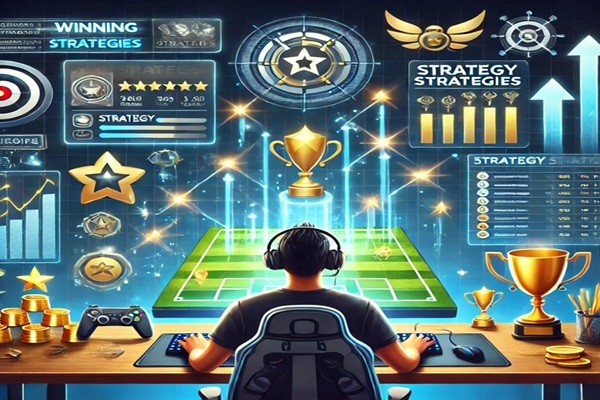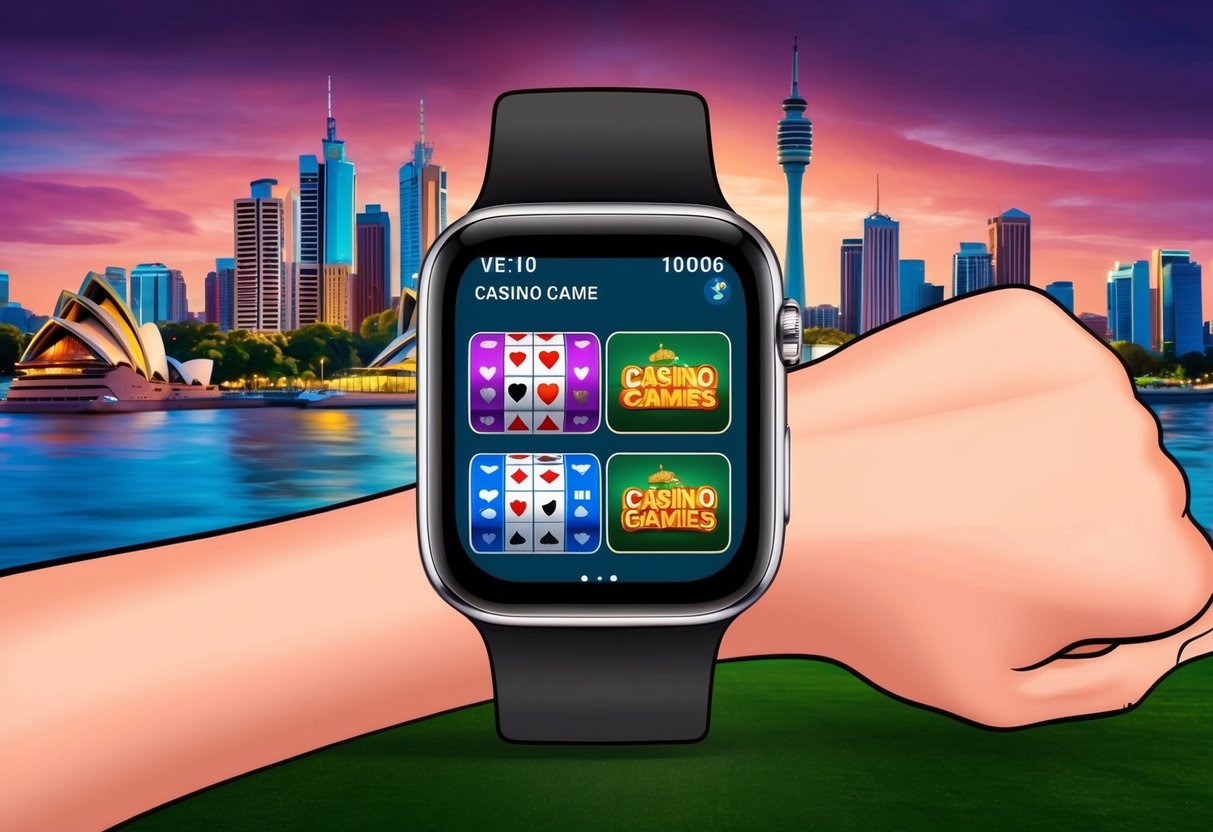Quick Decision-Making Games: Fun and Fast-Paced

Fast-paced, quick decision-making games hold a special allure in the ever-evolving world of gaming. They challenge your mental agility, sharpen your reflexes, and reward split-second choices that can drastically change the course of play. Whether you’re a casual gamer looking to fill short bursts of free time or a seasoned competitor craving heart-racing action, these games deliver on multiple fronts—entertainment, skill-building, and an adrenaline rush. This article dives into the core elements that make quick decision-making games both fun and beneficial, explores their various subgenres, and offers insights on how to get the most out of these rapid-fire experiences.
What Defines a Quick Decision-Making Game?
At their core, quick decision-making games revolve around tight deadlines or limited windows for making impactful choices. Unlike complex role-playing games (RPGs) that might span dozens of hours, these games often condense the action into shorter, more intense sessions. The swift pace leaves little room for overthinking, forcing you to tap into your instincts and adapt rapidly to in-game developments.
- Fast Time Constraints: These titles typically feature countdown clocks, incoming waves of enemies, or urgent in-game events that demand near-instantaneous reactions.
- High Stakes: A small lapse in concentration can lead to defeat, heightening the tension and excitement.
- Immediate Feedback: Wins and losses occur quickly, allowing players to learn from mistakes and apply new strategies in the next round.
Why Are They So Engaging?
Quick decision-making games provide a distinct kind of engagement that stems from their immediate feedback loops. The short cycles of action and outcome keep players hooked, as each victory or defeat offers real-time lessons in reflexes and strategy.
- Adrenaline Rush: The time-sensitive nature of these games naturally elevates your heart rate. Rapid decision-making under pressure triggers an adrenaline release, which can be both thrilling and rewarding.
- Skill-Building: Repeatedly making quick choices hones reaction times, pattern recognition, and focus. Over repeated sessions, these cognitive skills often become sharper, translating to improvements in other fast-paced tasks.
- Short Commitment: You don’t need hours to enjoy a meaningful session. A few rounds can easily fit into a busy schedule, making these games ideal for quick breaks or commutes.
Popular Genres of Quick Decision-Making Games
While the concept of rapid choices might sound narrow, it actually spans multiple genres and gameplay styles. Each genre appeals to different types of players but shares a common thread—every second matters.
A. Action Arcade Titles
From retro-style shooters to modern endless runners, action arcade games typically require constant attention. Whether dodging obstacles or blasting incoming enemies, hesitation often leads to instant failure. The continuous feedback loop—fail quickly and try again—helps develop a natural rhythm and quick reflexes.
B. Battle Royale and Fast-Paced Shooters
In large-scale multiplayer arenas, players must quickly grab gear, assess terrain, and engage in firefights. Here, the stakes are amplified by other human participants, who are also strategizing on the fly. A slight delay in deciding when to shoot, run, or take cover can mean the difference between a triumphant match or an early exit.
C. Puzzle and Strategy Hybrids
Some games blend puzzle mechanics with rapid decision-making. Imagine matching colored blocks under a strict time limit or rotating falling shapes before they stack too high. The puzzle element introduces a layer of complexity, while the ticking clock ensures you can’t sit idle weighing every angle.
D. Rhythm and Music Games
Here, both quick thinking and hand-eye coordination come into play. Following on-screen cues in sync with a musical track requires you to make decisions (hit or miss) within fractions of a second. Rhythm games prove that quick decision-making extends beyond aiming and timing, venturing into the creative realm of music interaction.
Benefits Beyond Entertainment
Though their primary purpose is enjoyment, quick decision-making games can yield tangible benefits for your mental acuity and reflexes:
- Improved Hand-Eye Coordination: By constantly aligning your actions with visual cues, you train your motor skills, making your reflexes more precise.
- Enhanced Focus: Because these games punish distractions, they naturally teach you to maintain concentration on immediate tasks.
- Stress Relief: The immersive quality of time-pressured scenarios can help you temporarily forget external worries, offering a mini break from daily stress.
- Adaptability and Problem-Solving: You become more adept at shifting strategies mid-game. This skill can translate into real-life scenarios where you need to pivot and adapt under pressure.
Tips for Mastering Quick Decision-Making Titles
To fully enjoy the thrill of fast-paced gameplay and improve your win rate, consider a few basic principles:
- Start Slow: If new to this genre, begin with moderate difficulty levels. Build your reflexes and muscle memory at a comfortable pace.
- Study Patterns: Even the most chaotic-looking games have underlying patterns—movement cycles, spawn points, or repeating puzzle shapes. Recognizing these reduces your mental load.
- Practice Mindfulness: Over-excitement can lead to hasty moves. Remain calm, even when the clock is ticking. Practicing controlled breathing can help maintain composure.
- Leverage Quick Restart: Many games in this genre allow you to restart immediately after losing. Rapid repetition cements skills faster than waiting through cutscenes or long load times.
Bringing It All Together
The appeal of quick decision-making games lies in their fast-paced nature and the sense of accomplishment they deliver. They are easy to pick up yet challenging to master, and they provide both an exhilarating rush and a real test of mental and physical reflexes. Players can enter a focused “flow” state that is simultaneously demanding and deeply satisfying. If you’re searching for a gaming experience that keeps you on your toes, this genre is definitely worth exploring.
Moreover, many modern platforms have begun incorporating competitive and even social elements, allowing friends to challenge each other’s high scores or compete in real-time. One example is the Zupee game, which integrates quick decision-making tasks into engaging online tournaments, offering a blend of skill and friendly rivalry. Such formats are ideal for those who crave the excitement of gameplay that demands rapid choices with immediate, visible outcomes.
Conclusion
Quick decision-making games stand as a testament to how simple concepts—time limits, immediate feedback, and rapid rewards—can create profoundly engaging experiences. Their flexibility allows busy players to squeeze in quick sessions while also offering depth for those who aim to climb leaderboards and master advanced strategies. Beyond just fun, these titles serve as valuable tools for developing mental agility, reflexes, and focus. Whether you’re looking to beat your own records, compete with friends, or just unwind after a stressful day, fast-paced gaming offers a refreshing antidote to more drawn-out, time-intensive alternatives. Ultimately, these games remind us that sometimes, life’s greatest thrills come in the shortest of bursts—and each second counts.


